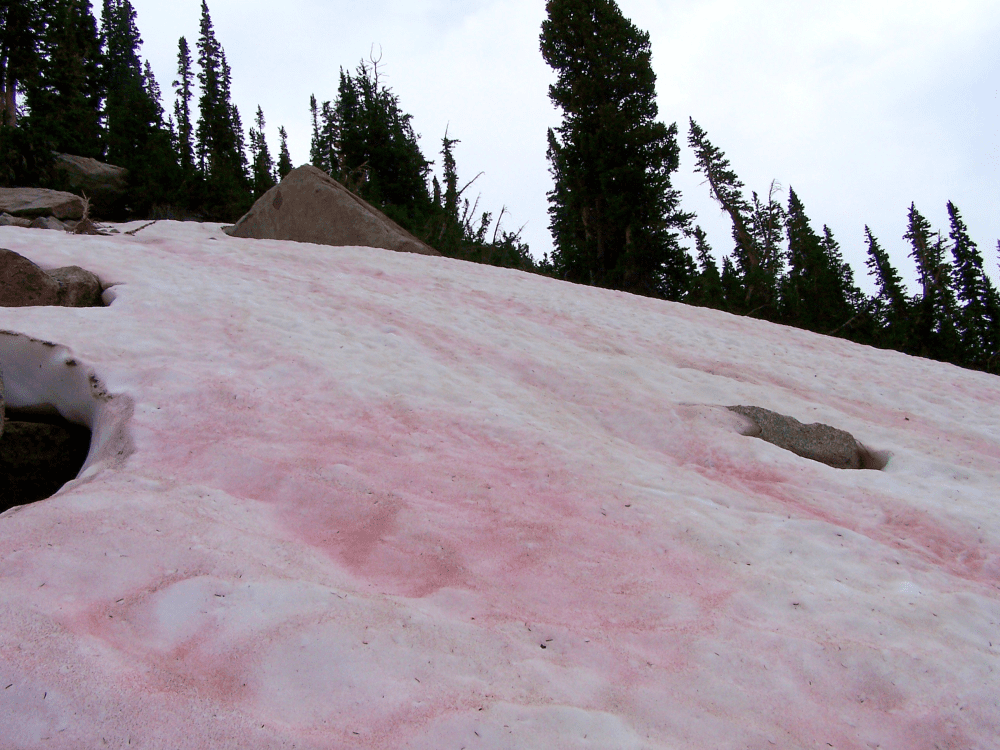Watermelon snow, also known as glacier blood, is a curiously pink-tinged phenomenon found In frozen parts of the planet. And, like yellow snow, you do not want to eat it.
It’s the result of a type of algae present in the snow, and only gets its characteristic pink coloration when the sun is out. Curiously, watermelon snow is said to have a fruity aroma, but unless you want a case of The Poops, you’d best leave it well alone.
What is watermelon snow?
Watermelon snow is the result of the alga Chlamydomonas nivalis, a type of green algae found in freshwater environments. “Green algae?” we hear you cry. “That’s not pink.” No, at least, not until it’s sunny.
Why is watermelon snow pink?
Chlamydomonas nivalis releases a pigment to protect itself from UV radiation. That pigment includes carotenoids, which are found in carrots, tomatoes and peppers. It’s these pigments that give plants, algae and bacteria their yellow, orange and – you guessed it – sometimes pink characteristics.

The algae thrive in the cold, nutrient-poor environment that is snow and keep themselves safe from the sun during the colder months by adopting the form of a microscopic watermelon-colored jelly bean. If things heat up enough for the snow to melt, they scoot about as a mobile green cells, but when locked in the ice they are blushing watermelon.
Is watermelon snow bad for the environment?
Where watermelon snow becomes a bit problematic is the effect it has on the snow. Turning pink helps the Chlamydomonas nivalis algae stay safe from the sun’s rays, but it also makes the snow less good at reflecting UV light. This means it melts faster, and if there’s one thing the planet’s frozen environments don’t need, it’s more melting.
Is it safe to eat watermelon snow?
No. Not unless you’re really desperate. A diverse cast of species like to eat Chlamydomonas nivalis, including rotifers, nematodes, ice worms and springtails. On top of which, it’s said to have a laxative effect when eaten, and that’s something you probably don’t need when walking out in the pristine snow where cool breezes threaten to freeze your nether regions.
As a general rule, it’s not safe to eat snow. Yellow, watermelon or otherwise.
Source Link: What Is Watermelon Snow? That Delicious-Sounding Pink Stuff